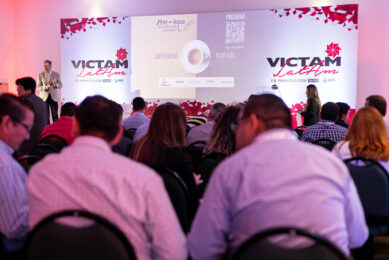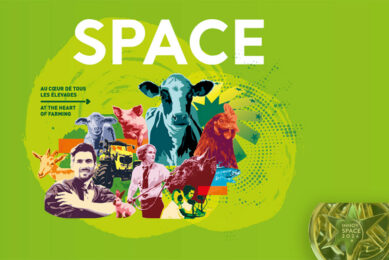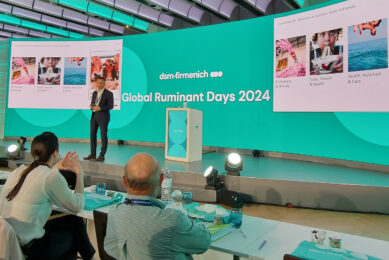Agri Vision 2011 hosts dialogue for future global food strategy
Several enabling factors essential to feeding the world of 2050 sustainably were identified in two days of lively debate between a broad spectrum of stakeholders in the agri-business value chains at Agri Vision 2011.
The factors include sustainable intensification, decoupling productivity from environmental impact, enabling rural entrepreneurs, broad partnerships, system transformation and greater investment in research. Agri Vision 2011 was the sixth in the biennial series of multi-stakeholder agri-business conferences organised by Nutreco together with Rabobank.
Based on the theme ‘Beyond Boundaries’, Agri Vision 2011 followed on from Agri Vision 2009 where delegates expressed the clear belief that it will be possible to feed nine billion people sustainably in 2050. Agri Vision 2011 explored how that can be done and identified factors for success and provided reasons for optimism. The presenters approached the objectives from different positions in the agriculture industry, from different parts of the world and even from outside of agriculture, highlighting the dilemmas facing the industry in its quest to feed nine billion people sustainably by 2050. They discussed options and opportunities, moving through perceived boundaries and heard from companies that have done so. Together they identified several enabling factors, such as sustainable intensification, water management, broad partnerships and communicating and sharing knowledge. The idea of communicating with consumers and other stakeholders via social media prompted lively debate that extended to the conference Twitter board.
Wout Dekker, Nutreco CEO: "When we organised the first Agri Vision in 2000 not many people fully appreciated the coming challenge in food production. Now everyone is aware of the challenge and the issues. Through the course of the conference we heard of shining examples from companies such as Unilever working directly with the farmers that produce our food and John Deere Water, reducing inputs while increasing yields. Three clear needs were identified; investment in research to increase agricultural productivity while decreasing environmental impact, commitment from governments and that we must ensure the farmers share in the benefit. Without farmers we cannot meet the challenge of feeding nine billion people in 2050."
Berry Marttin, member of the Executive Board of Rabobank, Chairman of Rabobank International’s Rural & Retail operations and keynote speaker at the conference adds: "For a long time, the players in the value chain have not sufficiently recognised the role farmers play in the chain. Now, as they face scarcity in primary producing, the players in the value chain must use all their charms to encourage the farmers to work with them. We expect that farmers will increasingly embrace the role of rural entrepreneurs, both as the key link in the value chain and as the primary producers who will ensure sustainable primary production until 2050."
Agri Vision 2011 was the sixth in the biennial series of multi-stakeholder agri-business conferences organised by Nutreco together with Rabobank. Nutreco has organised the alternating multi stakeholder business conferences AquaVision and Agri Vision since 1996. Agri Vision 2011 attracted 375 delegates from 37 countries. The international character of the conference was further confirmed as more than 100 delegates came from outside Europe. Agri Vision 2011 ran from 21 to 23 June in Noordwijk aan Zee in the Netherlands. Nutreco is now preparing ideas for AquaVision 2012 and Agri Vision 2013.











